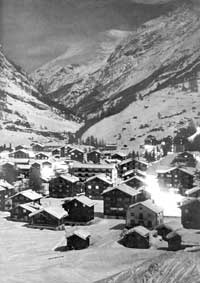 A friend of mine once spent far too much time living in Kabul, long before Hamid Karzai, Tony Blair and fashionable concern about the long suffering-people of Afghanistan. He was head of the International Committee of the Red Cross in Afghanistan. His was a thankless, endless task of feeding the hungry, helping prisoners of war and disseminating the tenets of the Geneva Convention to murderous warlords who breakfasted on fresh blood and hashish. This was around the time that an American diplomat told me that Afghanistan "was off the screen, zero interest level." People like my ICRC friend and a few other brave souls were doing their best, but officialdom in Washington, London and most of Europe wasn't interested.
A friend of mine once spent far too much time living in Kabul, long before Hamid Karzai, Tony Blair and fashionable concern about the long suffering-people of Afghanistan. He was head of the International Committee of the Red Cross in Afghanistan. His was a thankless, endless task of feeding the hungry, helping prisoners of war and disseminating the tenets of the Geneva Convention to murderous warlords who breakfasted on fresh blood and hashish. This was around the time that an American diplomat told me that Afghanistan "was off the screen, zero interest level." People like my ICRC friend and a few other brave souls were doing their best, but officialdom in Washington, London and most of Europe wasn't interested. I asked this fellow late one night, after far too many tins of Bulgarian beer, why he stayed, why he was so capable of dealing with all types of Afghans, from widows to warlords. His answer was a classic, and full of relevance for modern day Nepal where the risk of turning into 1990s Afghanistan can't be ignored.
"I am Swiss," said my friend, "I come from Appenzellerland-the most backward part of my country. We still haven't allowed women the right to vote in local elections. And sixty years ago, we were killing each other over cattle and women. We were having blood feuds, blockading each other and killing families in revenge. We were like the Taleban or any other Afghan warlord."
He went on to explain a pet theory, that the veneer of civility and modernity is paper-thin everywhere, that even the most advanced industrial societies can fall into bloody mayhem at a moments notice. And that all of our pasts are awash in backwardness, nasty behaviour, discrimination against women, the weak and the poor. "We're just a generation into this modern age," my friend opined, waving his tin of beer, "so I'm very much at home in Afghanistan."
To people from developing countries, Europe is a font of civilisation, a place where countries are both economically successful and generous with their own citizens and the global poor. It's a place that seldom puts a foot wrong and its experts, consultants and humanitarian workers flood the globe with good advice and cash, much as they used to send conquering armies to colonise. Yet it's so easy to forget what a bloody, nasty place Europe was, and how recently it was thus.
Even before the barbarism of the two World Wars, much of the continent was as my friend describes his Swiss homeland-brimming with dirt poor, subsistence farmers, alienated from the political and economic elite in their national capital, and ripe to heed the powerful message of ideologues promising Utopia after the release of a river of blood. Sound familiar yet?
Italy only became a country in the late 1800s, dozens of princely states and duchies united under a doddering monarchy that only really began to prosper after tinkering with fascism and suffering grievous defeats in two major wars. Germany too came together around the same time and remains to this day an unevenly cohesive place, its l?nder or states competing with each other in telling the nastiest jokes about the people across the state line.
The French are far from unified: northerners, southerners, Basques, Alsatians, Occians and the Italians of the Riviera have no time for each other. And Switzerland? It barely has a head of state. Its 33 cantons, like Appenzellerland which eventually gave the women the vote a few years ago, are more sovereign and independent than most countries in the United Nations. Nor do the British or the Dutch escape this sort of scrutiny although they have hung together better than most.
So what's the lesson for Nepal in Europe's countless rifts and fault lines? Well, it's that national unity doesn't require a unified view of the nation. And that diverse ethnicities, language groups and landscapes can come together and forge prosperity, even after devastating wars and economic collapses. Look to Europe for many reasons, but don't see it as a land of pristine peace where all has been forever perfect and only wisdom has served the common weal.
Think of those cattle rustlers of Appenzellerland, now schooling the world's warlords in the most humane ways of war and helping the hungry at every turn. But don't drink Bulgarian beer. Take my word for it.



